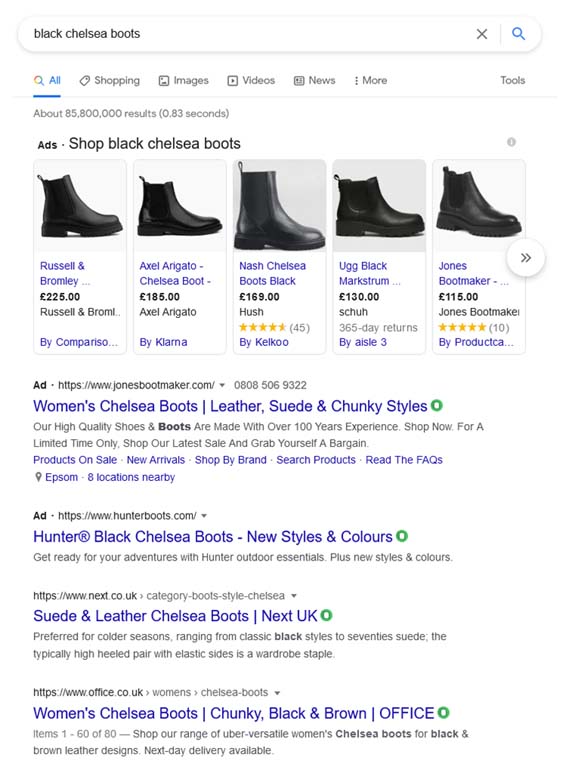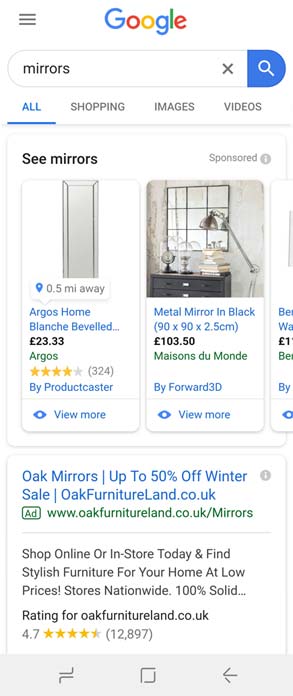Thank you, Google! Thank you for this update which clearly shows that both on page content and clean, well implemented html is as important for rankings as the meta data.
Google’s Page Title Update

At the end of August Google announced on their developer blog that they have made an update to how they generate the Page Titles displayed in the search results. As of mid-August Google said that it will populate the blue clickable link in the search results based on the content it feels best represents the content on the page. This could, and 80% of the time will, be the coded Page Title tag. However, this could also be copy pulled from any of the header tags on the page or other copy “that’s large and prominent through the use of style treatments.”
Google has been clear; well written user friendly meta data is still extremely important
This is different from when Google first started opting not to display the coded Page Title, back in 2012. Previously Google adapted the content displayed in the search results to try and match the context and intent of the searcher’s query. Google tried to guess how the webpage could answer the user’s problem based on their search query and connect the user to the related content on the page.
This was a great idea, so why are they moving away from it? We can infer from the nature of the new approach that even if a webpage has the information which will resolve a user’s search, and the page is authoritative enough to rank well for it, the user is not necessarily finding that information. The information is not being clearly communicated in the headings and prominent, stylised content blocks. Combine this with the average attention span of web users and Google could well be seeing high return rates to the SERPs from sites which it is ranking highly.
This time, Google is trying to better get across to the user what they will find on the webpage, before they click through. It is a straightforward case of expectations management. This should mean that more people will stay on the website which they click through to, Google thereby doing its job. Unfortunately, whilst marketers and web developers take a while to catch up this may mean that users aren’t getting to the best webpage for their needs, but they are staying on the webpage which they do visit.
What to do next
Google has been clear; well written user friendly meta data is still extremely important. If your Page Titles are effectively communicating the content of the page to users then Google will have no reason to deviate from them. This is even more the case now that Google is no longer trying to match intent to webpages. So, now might be a good time to review all your meta data.
However, as stated in my title, SEO is about so much more than meta data. This update clearly shows that the content on your page should also be well written, well structured, well optimised and correctly coded. Review your top SEO landing pages from a user’s perspective, do they:
- Answer the implied question/intent of your target keywords at first glance? On mobile too?
- Load the most important information first?
- Have distracting banners or prominent messages which detract from the main purpose of the page?
- Have heavy, unstructured copy which is likely to cause a user to bounce?
On the basis of your review make sure that each page is clearly and prominently answering the central question that a user has when they are searching for your target keywords. Work with your developers to make sure that the most important content is loading first. Also work with developers to make sure that content which is not relevant to that page is not over-stylised therefore giving the impression to search engines that it is important content.
Google has always said that its purpose is to help users to find the best content on the internet to answer their problem. I do find it sad that this update is actually deviating slightly from that goal because it is now going to show users the webpages which most explicitly answer their question, rather than those that do it best. However, I hope that this will encourage Marketing Managers and Website Developers to focus on clear and effective coding and content layout so that we can get back to being served the best content for us which then also quickly and effectively communicates what we need to know. Fingers crossed!
Follow my contributions to the blog to find out more about digital marketing news and digital marketing strategy or sign up to the ThoughtShift Guest List, our monthly email, to keep up-to-date on all our blog posts.





